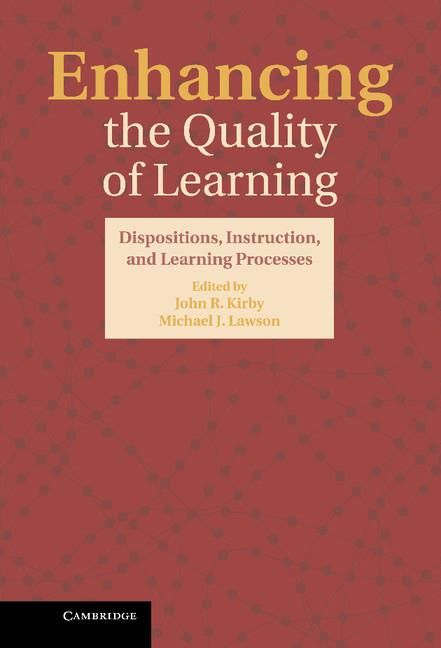Enhancing the Quality of Learning Dispositions, Instruction, and Learning Processes
162,99 €
inkl. MwSt,
Lieferung nach Hause
Beschreibung
Details
Einband
Gebundene Ausgabe
Erscheinungsdatum
06.12.2013
Herausgeber
Kirby John R. + weitereVerlag
Cambridge AcademicSeitenzahl
414
Maße (L/B/H)
23,5/15,7/2,9 cm
Gewicht
780 g
Sprache
Englisch
ISBN
978-0-521-19942-1
Unsere Kundinnen und Kunden meinen
Verfassen Sie die erste Bewertung zu diesem Artikel
Helfen Sie anderen Kund*innen durch Ihre Meinung
Kurze Frage zu unserer Seite
Vielen Dank für dein Feedback
Wir nutzen dein Feedback, um unsere Produktseiten zu verbessern. Bitte habe Verständnis, dass wir dir keine Rückmeldung geben können. Falls du Kontakt mit uns aufnehmen möchtest, kannst du dich aber gerne an unseren Kund*innenservice wenden.
zum Kundenservice
